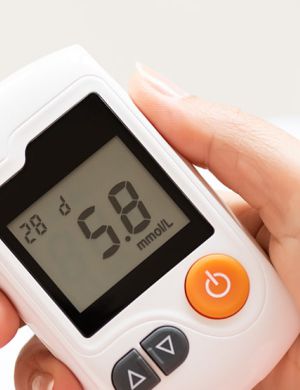
Pharma Regulatory Intelligence Tools and Supply Chain Management
Many Organizations are relaying on the Regulatory Intelligence databases due to burden of collecting, understanding, interpretation of data from the regular authorities. Regulatory Intelligence tools or databases will give the complete data support and solutions.
Challenges:
- Pharmaceutical or Medical Devices regulatory process is the challenging because of the process will be different for every country and also updates of the process will constantly releasing time to time
- Collecting data from the Regulatory Authorities is the complex process which involves research, collection, analyzing and distributing. Any deviation in the process will lead to process failure that can affect the client; process deviation may also lead to paying fines to the Regulatory Authorities
- Global coverage shall be required, need to cover as many as countries
- Regulatory changes and active tracking of data required on relevant updates
- Analyze the content of new updates and need to compare with the previous versions
- Segregation of useful information with country specific in the database is a complex process
- Some of the authorities releases the updates very rarely which need to be further checked and identifies by the external sources and same to be collected from the regulatory authorities which is very much time consuming process for the database companies
- Maintain the database with user friendly will be cost effective
- Platform must be created to maintain the data in regular manner and also human intelligence will required to check the data, understands the data which is used by the authority and give precise, concise data to client which involves many people to work in real-time
- Data includes the documents, guidelines and other references given by the authorities will be provided by the databases
- Global Approach: Platform needs to build which can access to global clients
- Multi-level data quality checks need to be done accordingly both frontend, backend of the Regulatory intelligence database
- Training needed to all the persons
- By using Regulatory intelligence platform or database the user need to understand the data, compares the both previous, present versions and make decisions accordingly before approaching regulatory authority which is very much helpful, less time consuming process
- All the data must be given clearly without fail because user will not cease in the middle and continue with the other database
- Need to achieve user timelines and deadlines
Opportunities:
Regulatory intelligence databases give many opportunities which can help enormously to the user.
- Gives complete coverage of the country regulatory updates on time with precision.
- Database can access globally, no need of conditions
- User friendly database and data will help in complete the process of registration, approval, renewal, changes at the regulatory authorities in timely manner and no need of waiting longer period
- Creates more employment of science and non-science people
- Due to manual addition of data in the database, it’s very easy to understand and practice the step by step process
- As the data will be approved by the multilevel people, no need of reviewing again by the regulatory people
- Users can mainly focus on the manufacturing processes, no need to worry about regulatory aspects
Uses:
- Regulatory databases give clear cut understanding and precise data for the user
- Checklists are very useful for the manufactures to complete the ongoing process and also next level in the process
- User waiting period will be less and tension free as the user will know about the complete process and timelines
- Timely up to date data will be available to the user
Supply Chain Management in Pharma
Supply Chain Management in Pharma is a huge process and is jumbled. It is completely depends on the regulatory guidelines and regulations for the nature of the Industry.
Pharmaceutical supply chain management is the successful management of supply chain operations to gain complete clearance from the regulatory authorities and also regulatory authorities know the process in a keen manner.
There are Numerous Pharmaceutical supply chain guidelines and principles are there for each and every step performed in the industry.
Some of them are:
- Good Clinical Practice Guidelines
- International Organization for Standardization (ISO)
- Pharmaceutical Quality System
- Quality Risk Management
- International Trade Regulations
- Product safety and Quality regulations
- Data privacy and Security regulations
- Drug Supply Chain Security Act
- Unique Device Identification (UDI) Rule
- Product Life-Cycle Management
- Traceability of pharmaceuticals and medical equipment
- Waste Management
- Hazardous Substances Laws
Challenges:
There are some challenges in the Pharmaceutical regulatory supply chain management:
- Industry need to know about their product and market boundaries
- After knowing the boundaries, then the industry need to know about the complete regulatory information where the product is manufactured and marketed
- In spite of being marketed, industry needs to know the raw materials and supplements from where it was come from and their regulations
- Implementation of the good practices and the process of regulations give the on time approval from the regulatory agencies
- Industries need to know the on-time regulatory changes happen in Global wide
- Immediate response to the changes of regulations will be a big deal to the industry
- Industries need to compare their regulations with the new regulations released time to time otherwise huge penalties and delay in the regulatory process will takes place
- Transparency should be maintained in between regulatory agencies and industries
Benefits of Supply chain management:
- Improved regulatory approvals
- On time approvals from the regulatory agencies
- Every guidance and regulation changes can be followed
- Transparency gives good results
- Greater profitability through avoiding penalties
- Registration, Evaluation, Authorization and Restriction of products can be identified easily
- Complex problems in the regulatory guidelines will be easily identifies and can solved
- Industries can take multiple steps and change many different procedures to meet the regulatory standards and regulatory compliance
- Conflicts in between industry experts and regulatory experts can be minimized and resolved quickly
For Example:
Supply Chain Management in Europe:
- All European Pharmaceutical companies are bound to fulfill the regulations
- Supply chain management defines the agreement between the GMP responsibilities and Quality Agreements
- Each and Every process is controlled
- Potential risks and desired risks are needed to be recognize at each and every level of process in pharmaceutical industry
- On-site Audits
Regulatory Inspection process:
- Material Management: EU-GMP, Part I, 5; Part II, 7
- Quality control: EU-GMP, Part I, 6; Part II, 11.2
- Solvent Recovery: EU-GMP, Part II, 14.4
- Distribution: EU-GMP, Others, GDP; Part II, 9,10,17
- Quality Agreements: EU-GMP, Part I, 7; Part II, 16
- Self-Inspections: EU-GMP, Part I; 9; Part II, 2.4
Regulatory Approval process:
- Specification Setting: ICH Q6A/ICH Q6B
- Impurity Control: ICH Q3 series
- Mutagenic Impurities: ICH M7
Supply Management Process:
- Quality Monitoring
- Change Management
- Awareness of Hazards, Assessment and control of risks
- Inspection & Guidelines ensure that regulatory oversight in the supply chain
Risk Assessment output:
- Confirmatory testing
- Risk Reduction
Don’t miss out! Click here to stay in touch.
Categories
- Biopharma (47)
- Consumer Health (15)
- Cosmetics (8)
- Diagnostics (5)
- Digital Health (8)
- Food (2)
- Medical Device (100)
- OTC (3)
- Regulatory Intelligence (5)
- Standards (41)
Recent Blogs
Get the latest updates from Vistaar

CONNECT WITH US

Let's talk about how DDi can help you







